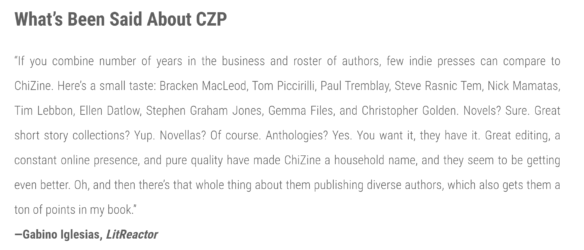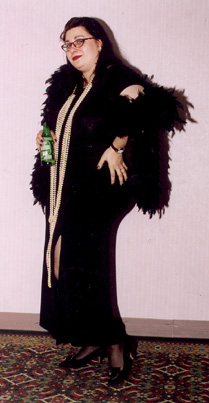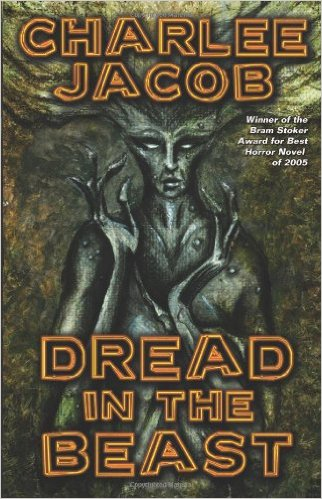The Sunburst Award Society has announced the winners of the 2018 Sunburst Awards for Excellence in Canadian Literature of the Fantastic in the Adult, Young Adult, and Short Story categories.
Adult Award
The winner of the 2018 Sunburst Award for Adult Fiction is The Bone Mother by David Demchuk, [Chizine Publications]
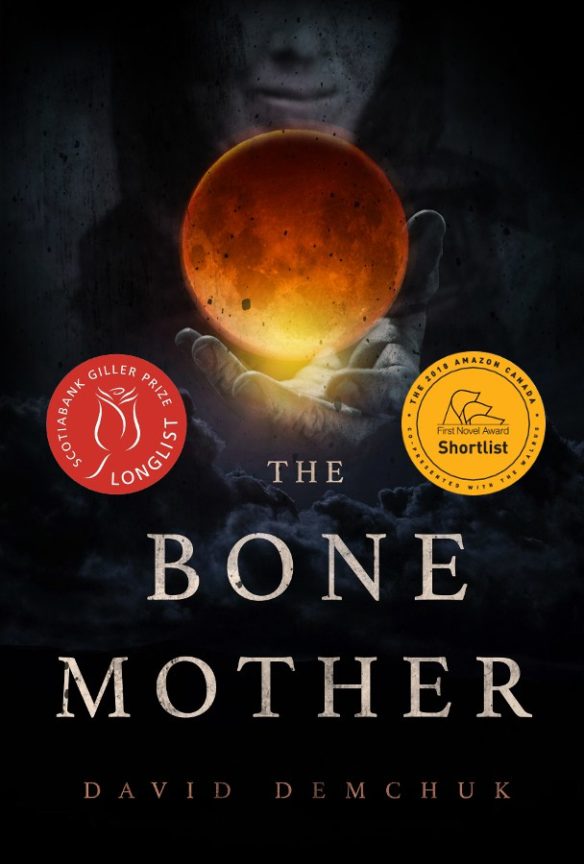
The Sunburst Jury commented:
David Demchuk’s The Bone Mother invites the reader into the uncanny valley between the present and the past. A series of related stories, many of them set in Eastern Europe, chronicle the fates of humans and mythical creatures as they face a war that may be their undoing. The stories explore the boundaries of compassion and warn of the dangers of forgetting. As unsettling as the stories are, they lead the reader deeper into the woods like breadcrumbs. The language is beautiful and the characters as haunting as the archival photographs that illustrate the book. The Bone Mother is a unique achievement.
David Demchuk has been writing for print, stage, digital and other media for nearly 40 years. The Bone Mother, his debut horror novel, was nominated for the Scotiabank Giller Prize, the Amazon First Novel Award, and a Shirley Jackson Award, as well as being longlisted for the Toronto Book Award. David has a special interest in queerness and monstrosity. His Cabbagetown back yard is home to a hive of curious but quick-tempered bees. He is quietly at work on a troubling new novel.
The other shortlisted works for the 2018 Adult Award were:
- Omar El Akkad, American War [Penguin Random House Canada]
- Terri Favro, Sputnik’s Children [ECW]
- Fonda Lee, Jade City [Orbit]
- Eden Robinson, Son of a Trickster [Penguin Random House Canada]
Young Adult Award
The 2018 winner of the Sunburst Award for Young Adult Fiction is The Marrow Thieves, by Cherie Dimaline, [Dancing Cat Books]
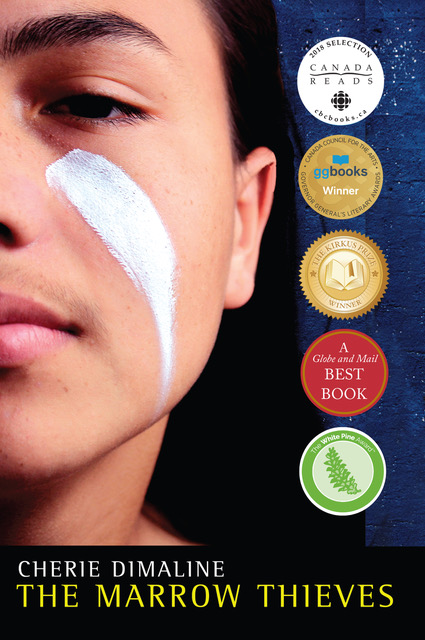
The Sunburst Jury commented:
Cherie Dimaline’s The Marrow Thieves is the story of young Frenchie, an Indigenous teen, and his companions, who are on the run from a society that wants their bodies — and their souls. The book brilliantly connects the legacy of residential schools to a dystopian post-climate-change future where only Indigenous people are able to dream. Dimaline’s novel reminds us of the power of storytelling and the importance of community, reinforced for the disenfranchised children by the wisdom of the heroic elder, Miigwans. The writing is painful yet beautiful, bleak but ultimately hopeful. In this era of reconciliation, Cherie Dimaline’s The Marrow Thieves is a work of speculative fiction that resonates and stays with the reader long past the last page.
Cherie Dimaline is an author and editor from the Georgian Bay Métis Community. The Marrow Thieves has already been awarded The Governor General’s Award for Young People’s Literature and the U.S. Kirkus Award For Young Readers. Her first book, Red Rooms (Theytus Books, 2007), won Fiction Book of the Year from the Anskohk Aboriginal Book Awards. Her novel The Girl Who Grew a Galaxy (Theytus Books, 2013), was short-listed for the 2014 Burt Award.
The other shortlisted works for the 2018 Young Adult Award were:
- Charis Cotter, The Painting [Penguin Random House Canada]
- Fonda Lee, Exo [Scholastic]
- Kari Maaren, Weave a Circle Round [Tor/Forge]
- Wendy Orr, Dragonfly Song [Pajama Press]
Short Story Award
The winner of the 2018 Sunburst Award for Short Story is “The Beautiful Gears of Dying” by Sandra Kasturi [The Sum of Us, Laksa Media]

The Sunburst Jury commented:
In a strong field with many outstanding stories, Sandra Kasturi’s “The Beautiful Gears of Dying” did for the jury what speculative writing does best, by using a fantastic/technological trope to explore the complexity of human relations and the texture of human life. Kasturi’s story is linguistically complex, economical, emotionally intense, and yet accessible, and it provokes recurring thoughts about our human predicaments.
Sandra Kasturi is a poet, writer and editor, and co-publisher of the World Fantasy and British-Fantasy Award winning press, Chizine Publications. Born in Estonia to an Estonian mother and a Sri Lankan father, she now lives in Canada. Sandra is co-founder of the Toronto SpecFic Colloquium and the Chiaroscuro Reading Series. Her work has appeared in publications such as On Spec, Prairie Fire, Tesseracts anthologies, Taddle Creek, ARC Magazine and others. Her two poetry collections are: The Animal Bridegroom and Come Late to the Love of Birds. Sandra is currently working on a new poetry collection as well as a new collection of her short fiction.
The other shortlisted works for the 2018 Short Story Award were:
- Rich Larson, “Spiked” [Abyss & Apex, June 2017]
- Karin Lowachee, “Meridian” [Where the Stars Rise, Laksa Media]
- Rati Mehrotra, “Hacker’s Faire” [Cast of Wonders #239, March 2017]
- Kate Story, “Animate” [Cli Fi: Canadian Tales of Climate Change, Exile]
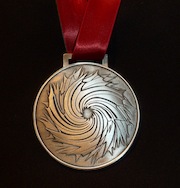
Sunburst medallion.
Winners of the Sunburst Award for Excellence in Canadian Literature of the Fantastic receive a medallion that incorporates the Sunburst logo. Winners of both the Adult and Young Adult Sunburst Award also receive a cash prize of $1,000, while winners of the Short Story Sunburst Award receive a cash prize of $500.
The Sunburst Award takes its name from the debut novel of the late Phyllis Gotlieb, one of the first published authors of contemporary Canadian speculative fiction.
SUNBURST JURORS: The 2018 Sunburst Award jury was comprised of Megan Crewe, Kate Heartfield, Dominik Parisien, Halli Villegas, and Heather Wood. Jurors for the 2018 short story awards were Candas Jane Dorsey, Emily Pohl-Weary, and Alexandra Renwick.
Jurors for the 2019 novel awards will be Greg Bechtel, Janie Chang, Susan Forest, Kari Maaren and Susan Reynolds. Jurors for the 2019 short story awards will be S.M. Beiko, David Demchuk, and Gemma Files.
Submissions of eligible works published in 2018 for the 2019 awards are now being accepted. See the Sunburst Award News Page for details.
[Based on a press release.]
